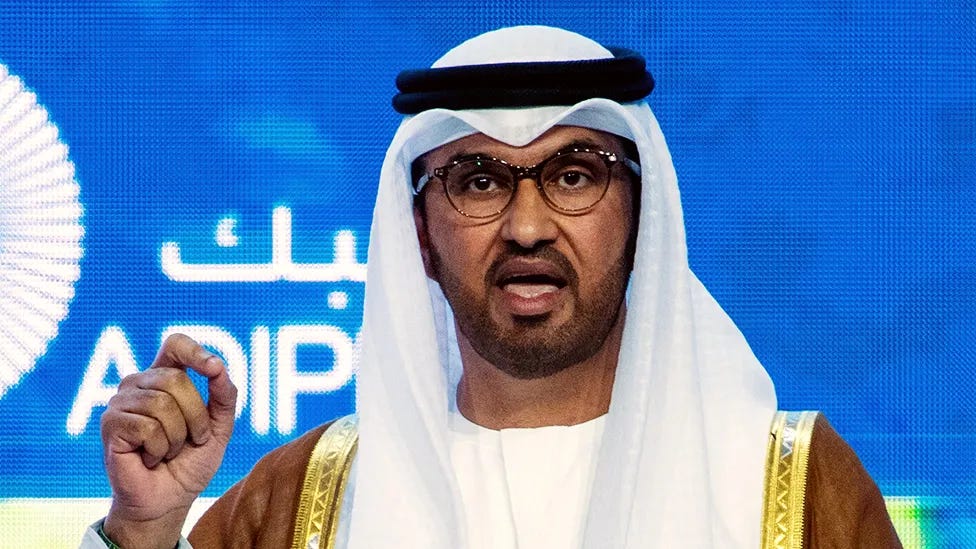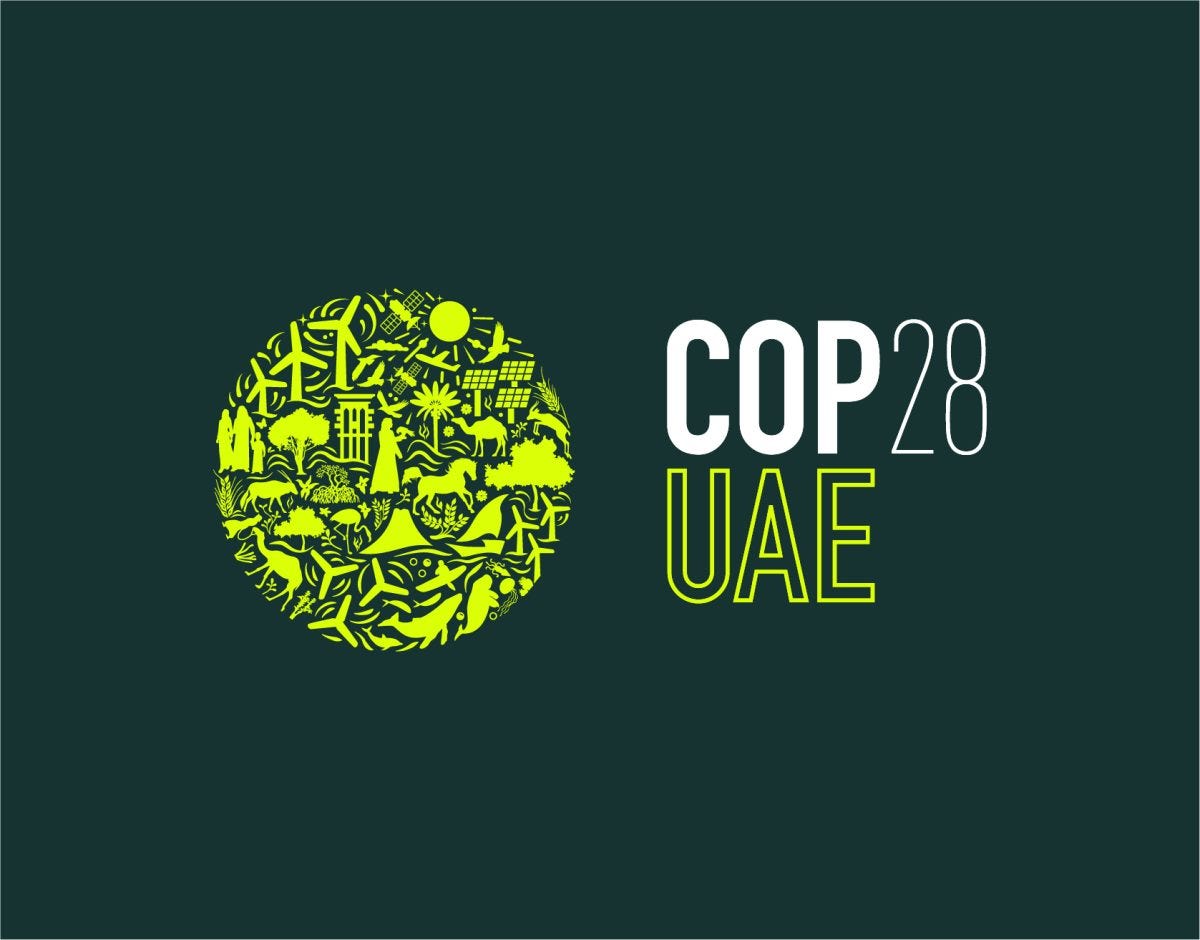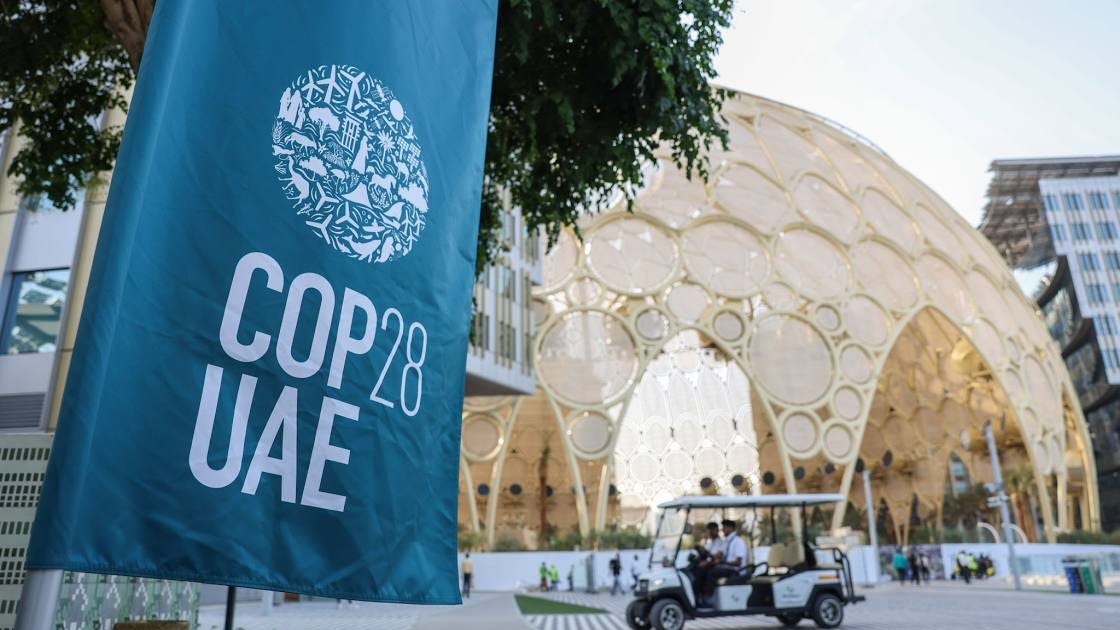COP28: Extended Negotiations Amidst Disagreements Over Key Phrases
On the evening of December 11, the Presidency of the COP28 climate summit in Dubai unveiled the crucial draft text of the declaration, which invited strident criticism from various stakeholders. Culmination of the critical United Nations conference that commenced on November 30, this essential document delineates a strategy focused on "reducing both consumption and production of fossil fuels, in a just, orderly, and equitable manner." Ambitiously, it sets a target to achieve net zero emissions by, before, or around the year 2050, in line with scientific recommendations. However, this crucial revelation comes amid a notable delay. The summit, which was originally expected to forge a consensus agreement by December 12, is now navigating through a maze of seemingly irreconcilable differences, leading to an unexpected and challenging extension.
At the heart of the controversy is the draft's conspicuous omission of the terms "phase out" or “phase-down” regarding fossil fuels. This intentional exclusion has sparked a flurry of reactions from many of the 200 nations and numerous climate advocacy groups in attendance. Amid escalating expectations, COP28 has evolved into a dynamic forum for debate, centrally focused on the urgent imperative to tackle global warming and substantially cut down on fossil fuel dependency. This latest twist in the narrative adds a new layer to the complex tapestry of global climate negotiations, underscoring the intricate blend of political, economic, and environmental factors that influence our shared approach to addressing the climate crisis.

Draft Agreement Controversy: A Pivot from Phase-Out Commitment
At the heart of the ongoing dispute at COP28 is the summit's latest draft agreement. This pivotal document, originally expected to spearhead a comprehensive and bold plan for achieving net zero fossil fuel usage, has instead taken a more subdued stance. The draft steers clear of explicitly demanding a phase-out or phase-down of fossil fuels, a topic that has been a source of sharp division among the nations in attendance. This softer approach, suggesting a variety of emission reduction strategies without firm commitments, has drawn significant criticism. Key global players such as the European Union and the United States, along with a chorus of climate advocates, have labeled the draft as "grossly insufficient." They argue that it lacks both the coherence and the sense of urgency necessary to confront the escalating challenges posed by climate change effectively. This divergence from a more decisive stance on fossil fuel reduction has transformed the draft agreement into a focal point of controversy, reflecting broader tensions about the future direction of global climate policy.
Oil-Producing Nations and COP28 Presidency
The Presidency of COP28, currently held by Sultan Al Jaber, who also leads the UAE’s state-owned oil company, is accused of pandering to oil-producing nations. Allegations of Saudi Arabia pressuring the UAE to exclude fossil fuels from the agreement and OPEC's pushback against the phase-out language further complicate the negotiations.
The Response of Climate Advocates
Climate advocates express disappointment and alarm over the summit’s direction. The use of non-committal language and the absence of concrete timelines in the draft are criticized for undermining the urgency to address climate change. The draft's ambiguity and potential loopholes for prolonged fossil fuel usage have raised concerns about the influence of the fossil fuel industry on global policies.
Navigating the Negotiation Impasse
The draft's reception has been mixed, with some negotiators deeming it a "death sentence" for the climate agenda. The need for unanimous approval of the summit deals means the current impasse may lead to further revisions or, in a worst-case scenario, no agreement at all.
The Way Forward: Seeking Consensus
The ongoing negotiations at COP28 reflect the complex and diverse interests of the participating countries. As the summit approaches its conclusion, the challenge lies in reconciling these interests to arrive at a meaningful and impactful agreement. The focus remains on finding a balance that addresses the urgency of climate action while considering the economic and social implications for all nations involved.
Not Curtains Yet
The COP28 has not officially ended yet and there could be a face-saving but highly watered down consensus agreement that may still be delivered.
Stay tuned. “The KBS Chronicle” will report as soon as the news breaks.
No deal till 5:24 AM IST on December 13, Wednesday.
Summary (from BBC)
Negotiations into the Night: Almost 200 countries are engaged in extended negotiations in Dubai to reach a consensus on climate change, following the removal of a commitment to "phase out" fossil fuels from the draft agreement.
Anticipation of New Draft: A revised draft deal is expected to be published overnight, which will be closely examined by negotiators, particularly for changes regarding fossil fuel policies.
John Kerry’s Statement: U.S. climate envoy John Kerry has indicated that the new draft text shows progress and will feature stronger language on key issues.
Criticism of Monday's Draft: The initial draft released on Monday faced criticism from the U.S., EU, small island nations, and the UK for not being sufficiently ambitious, particularly in its approach to fossil fuels.
Hopes for Phasing Out Fossil Fuels Dashed: There was a prior expectation that the summit might lead to a historic commitment to phase out coal, oil, and gas, but this was unexpectedly omitted from the earlier draft.
COP28 Chief’s Remarks: A chief of COP28 mentioned that the latest draft should be seen as a "starting point," highlighting that they have been actively seeking "feedback" overnight.
Requirement for Unanimous Agreement: For a deal to be finalised and accepted, it requires the unanimous agreement of all 198 participating countries.
The Climate Crisis and Fossil Fuels: The burning of fossil fuels is a major driver of global warming and poses a significant risk to millions of lives. To date, there has been no collective agreement by governments to cease their use.
NEW DEAL
In Dubai, a new agreement has been reached at the UN climate summit following several days of negotiations. The agreement represents a significant shift as it marks the first time that all countries are called upon to transition away from the use of fossil fuels.
However, it falls short of mandating a complete phase-out, which had been a key goal for many governments. The text acknowledges the imperative for substantial, immediate, and continual reductions in order to limit global temperature increases to 1.5°C.
COP28 president Sultan Ahmed Al-Jaber states, "Together we have confronted realities and we have set the world in the right direction," emphasizing the significance of the accord. Notably, this marks the first time that nations have collectively acknowledged the necessity of moving away from oil, gas, and coal at a UN climate summit.
Nevertheless, there are criticisms from some countries, such as Samoa, which expressed concerns that island nations heavily impacted by climate change were not adequately represented in the approval of the text.
The burning of fossil fuels is recognized as a driver of global warming, posing a significant risk to millions of lives. To date, there has been no collective agreement among governments to cease the use of fossil fuels.






